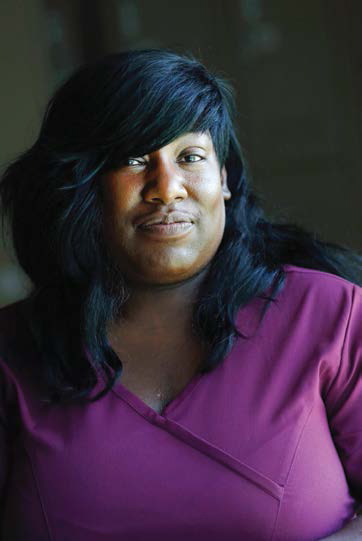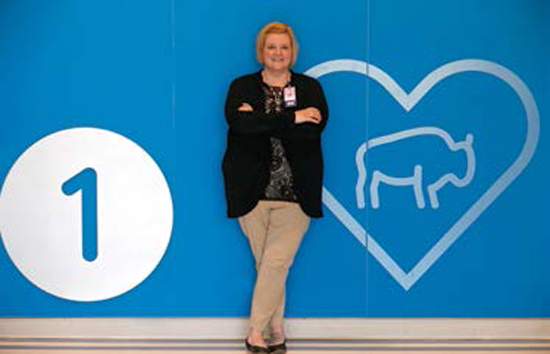Sharpening Tools For Tough Struggles Ahead
July 6, 2018
Training Program produces new cadre of leaders.

Last month, for example, 13 members from Syracuse and 12 from Buffalo in upstate New York were awarded certificates for completing an eight-month Leaders in Training (LIT) program. Graduates praised the program, stressing that they are now far better prepared to lead their co-workers in the workplace. “The classes far exceeded my expectations,” says Sheila Pickett, a CNA at Onondaga Center for Rehabilitation and Nursing in Minoa, NY.
The LIT classes, which are conducted by regional staff in collaboration with the Union’s Education Dept., employ the popular education model in which participants draw lessons from their personal experiences. Among the subjects that were covered in the curriculum were labor history, politics, social justice, public speaking, the role of leaders in the workplace and workplace organizing projects.
“I learned so much new about the history of working people in this country,” says David Telfer, a CNA at Syracuse’s Loretto Health & Rehabilitation. “I also know more about how to get involved in politics and how to hold elected officials accountable.”
I work in a large facility, so I needed ideas on how to reach a lot of members. We had an exercise on how to map and recruit, how to build from the ground up and even how to use social media.
– Darlene Gates
Jessica Wentland, a delegate at Buffalo’s Children’s Hospital, was one of four RNs in the Buffalo class. “The history we learned in the class helped me to understand how to use the lessons of the past to help us move forward in the present,” she says. She says that the classes were timely, noting, “We have come far, but now we have a President who wants to take us back.”
The graduates say that the classes spoke directly to current issues, exploring topics as wide ranging as the increased attacks on labor, the rollback of social and economic gains, the #MeToo movement and Black Lives Matter.

A highlight for members were the public speaking classes. Many were fearful at first. Wentland, who praises the class, says, “In the beginning, I fought against it tooth and nail.” Darlene Gates, a home health aide at Weinberg Campus in Buffalo, agrees enthusiastically: “The public speaking sessions were great. They gave me the confidence to speak to members and management.”
The students say that another highpoint was the chapter building projects that they applied to their workplaces. “I work in a large facility, so I needed ideas on how to reach a lot of members,” Gates says. “We had an exercise on how to map and recruit, how to build from the ground up and even how to use social media. This is important for me now because we have contract negotiations coming up and Weinberg might soon have a new owner.”
Attendees stress that the classes also built camaraderie. “I became a delegate because I’ve always been for underdog,” says Pickett. “The classes helped me grow along with Union sister and brothers. Together we were all able to take a big step forward.”
“The classes have helped my confidence grow,” says Telfer. “Anyone who gets the opportunity should attend. I believe everyone who attends leaves as a much better leader.”
“We had wonderful lead instructors who were able to communicate in simple language,” Wentland says. “I got a lot out of each class, and I’ve already recruited a new delegate at my workplace.”
- 1199 Magazine | May / June 2018

